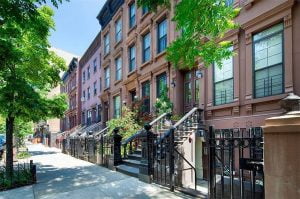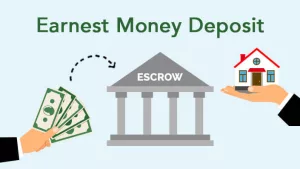What Is a Sponsor Unit? What You Need to Know
Go Back To Previous PageDid you know that the starting price of renting a condo in New York City is over $3,400 per month? It is no secret that New York City is one of the world’s most expensive real estate markets. Some people may question how they can ever afford to rent there. One way you can cut down on rent costs is by finding a sponsored unit. What is a sponsor unit? What are the benefits of a sponsor unit? This is your guide.
Some people may question how they can ever afford to rent there. One way you can cut down on rent costs is by finding a sponsored unit. What is a sponsor unit? What are the benefits of a sponsor unit? This is your guide.
Living in NYC is a dream for many Americans, but finding a new apartment in the Big Apple is complicated. The listing inventory is tight, and sellers want buyers who can move quickly on a transaction. Securing a brownstone or condo comes with its own set of difficulties. However, a co-op apartment is one of the most challenging housing types in New York City.
When a co-op hits the real estate market, many buyers jockey to place an offer. It is a competitive process, and the dreaded board application process makes getting a resale co-op in NYC hard. Yet you can purchase a sponsor unit without going through this trying ordeal.
What Is a Sponsor Unit?
Before discussing the advantages of a sponsor unit, you need to understand what this is. Sponsor units can sometimes be found in new development condos, where the developer owns them. But the even-more-elusive ones are in co-ops, in which case they’re owned by the corporation or the building’s original owner before it went co-op.
But the even-more-elusive ones are in co-ops, in which case they’re owned by the corporation or the building’s original owner before it went co-op.
In particular, purchasing a sponsor unit in a co-op is a different experience than buying a regular resale unit in a co-op building. Essentially, a sponsor unit is an apartment that has never been sold. In other words, sponsor units are apartments in a co-op where the developer or building owner owns the unsold shares allocated to the unit.
The appeal of these units is that there is no board interview, making for a faster transaction and much less stress. However, this usually comes at a higher upfront cost, as developers or building owners will sell the sponsored unit at a premium purchase price for the convenience of no-board review process and no-board evaluation processes.
Pros of buying a sponsor unit in NYC
- No board approval process required: Sponsored co-op units can be a breeze to buy, mainly because the buyer is not beholden to the usual, arduous approval process of buying a regular co-op unit. You won’t need to compile a complicated co-op board package or sit through a nerve-racking interview.
- Tend to be renovated.
Cons of buying sponsor unit in NYC
- Pay a premium price for the convenience of no board approval. Even if a sponsor unit needs significant renovations, it might not come at a discount. Many buyers are willing to pay a premium for the ability to sidestep the co-op board. To them, avoiding financial scrutiny and a long wait for approval is worth the extra cost.
- Estate condition: For example, long-term renters may have occupied many apartments before the sponsor decided to sell them. The units are usually in “estate condition” or “original condition,” meaning that they need renovation or upgrades, sometimes in the extreme.
- Resale poses the hurdle of board approval for the next buyer.
- Higher closing costs are similar to new developments. The main disadvantage of sponsor units is that the sponsor may require the buyer to pay the transfer tax, which means closing costs will be higher. For co-ops, sponsor units carry higher closing costs than resale units. NYC transfer taxes can add almost 2% of the purchase price to the buyer’s closing costs.
- There are possible legal issues. If a sponsor unit was previously a rental, legal issues might arise. This is especially true for rent-controlled or rent-stabilized units. In the case of a sponsor unit that was rented at market rate, buyers should ensure the lease was terminated legally and with the consent of all named tenants. A real estate lawyer should look into the terms of any proprietary lease associated with the unit.
Can You Rent Out a Sponsor Unit?
Some buyers may be looking for an investment property they can rent to tenants. But just because the building rented its sponsor unit doesn’t mean you can too.
For instance, despite the luxury of bypassing the co-op board when buying a sponsor unit, your special privileges stop at the purchase. As an owner, you’re the same as any other owner in the building — even when renting. Once you’re the apartment’s proud owner, you must adhere to the building’s house rules and bylaws.
First Person Living There
One significant benefit to sponsored units is that you will likely be the first to live there. You may be someone who does not want to imagine the presence of another person where you live. You could be very clean and prefer that no one ever used that space.
Being the first person to live there allows you to leave your mark on the place without worrying about what other people did before. That means a significant risk reduction regarding prior damage to the unit or parts of the unit wearing out or needing maintenance.
You are getting something new, and you can take advantage of that.
Shorter Process
The other significant benefit for buyers of sponsored units is that there is much less scrutiny of their financial records. If you want to buy or rent a sponsored unit, you do not have to worry about matching finances with other investors in the building.
This is an independent sale, so your financial requirements will not likely be nearly as high. So, this could be a significant advantage if you do not have the most savings or the best credit history.
When do you sponsor units for sale?
When developers purchase an apartment building and transition it to private residences, it may contain rent-controlled units. In these situations, the renter has the right to retain the property, even if a developer purchases the building. When the renter gives up the apartment, the building owner or a developer can sell it as a sponsor unit.
What are the closing costs for a sponsor unit in NYC?
NYC co-op purchases require lower closing costs than condo buildings because buyers are not subject to mortgage recording tax – one of the most significant transaction costs ranging between 1.8% and 1.925% of the loan amount. Since you own shares of the co-op corporation and not the title of real property, mortgage recording tax is not required.
As a result, sponsor unit transactions can close faster with less hassle, although there are extra closing costs to consider during offer negotiation. Similar to when buying in a new development, it is customary for the buyer of a sponsor unit to pay the New York State transfer taxes and New York City transfer taxes on behalf of the seller. Sometimes, you can negotiate for the seller to pay these costs, but it is less likely to occur in a competitive market.
Every building varies when it comes to down payments, and you usually can expect to shell out at least a 20% to 30% down payment when purchasing in a co-op.
Sponsor units are different, however. Since sponsor unit sales are not subject to board meeting approval, there is greater flexibility regarding a buyer’s financial requirements post-closing.
How sponsor units impact a co-op
They can still affect you even without buying a sponsor unit. A building needs a certain number of owner-occupied units to be viable and financially healthy. While there is no hard and fast rule, banks typically like to see that more than 50 percent of the units are owner-occupied.
Having too many sponsor units in a building could negatively affect the ratio. A poor unit-to-owner-occupant ratio can signal to a bank that a building is transient.
This could make it difficult for a buyer or owner to get a mortgage or refinance. If that’s the case, selling a unit may be more challenging, affecting its value.
Get a Sponsor Unit
These are just some things you need to know regarding a sponsor unit. You need to understand that this unit has never been sold before. That means that if you buy or rent it, you will likely be the first person who lives there. If you are worried about qualifying financially, know that purchasing a sponsored unit has fewer financial restrictions.
Are you ready to jump in? See our sales listings here.


